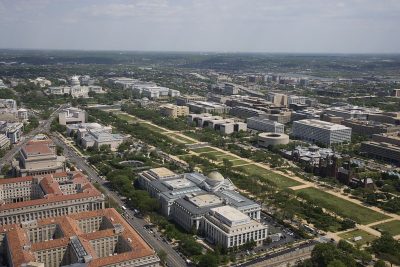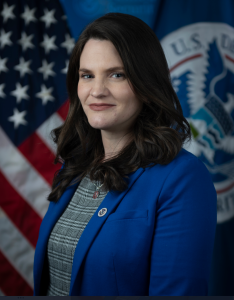Docs Offer Glimpse Inside “Censorship Industrial Complex”
The Censorship Industrial Complex (CIC) builds algorithms, not bombers

All Global Research articles can be read in 51 languages by activating the Translate Website button below the author’s name.
To receive Global Research’s Daily Newsletter (selected articles), click here.
Click the share button above to email/forward this article to your friends and colleagues. Follow us on Instagram and Twitter and subscribe to our Telegram Channel. Feel free to repost and share widely Global Research articles.
***
Welcome to the Censorship Industrial Complex. It’s rather like the old “military industrial complex,” which was shorthand for the military, private companies, and academia working together to achieve U.S. battlefield dominance, with the R&D funded by the government that buys the final product.
But the censorship industrial complex builds algorithms, not bombers. The players aren’t Raytheon and Boeing, but social media companies, tech startups, and universities and their institutes. The foes to be dominated are American citizens whose opinions diverge from government narratives on issues ranging from COVID-19 responses to electoral fraud to transgenderism.
When first exposed a few months ago, many of the actors and their media defenders perversely claimed that they, as private entities, were acting out of concern for “democracy” and exercising their own First Amendment rights.
However, the records and correspondence of an advisory committee to an obscure government agency tell a different story.
The Functional Government Initiative (FGI) has obtained through a public records request documents of the Cybersecurity Advisory Committee of the U.S. Cybersecurity & Infrastructure Security Agency (CISA).
The committee was composed of academics and tech company officials working with government personnel in a much closer relationship than either they or the media want to admit. Several advisory committee members who appear throughout the documents as quasi-federal actors are among those loudly protesting that they were private actors when censoring lawful American speech (e.g., Kate Starbird, Vijaya Gadde, Alex Stamos).
But the advisory committee members met often and worked so closely with their government handlers that the federal liaison to the committee regularly offered members his personal cell phone and even reminded them to use the committee’s Slack channel. Your average concerned citizen doesn’t have a Homeland Security bureaucrat on speed dial.
What were they working on?
CISA’s “Mis-, Dis-, and Mal-information” (MDM) subcommittee discussed Orwellian “social listening” and “monitoring,” and considered the government’s best censorship “success metrics.”
Who was to be censored?
CISA was formed in response to misinformation campaigns from foreign actors, but it evolved toward domestic “threats.”
Meeting notes record that Suzanne Spaulding of the Center for Strategic and International Studies said they shouldn’t
“solely focus on addressing foreign threats … [but] to emphasize that domestic threats remain and while attribution is sometimes unclear, CISA should be sensitive to domestic distinctions, but cannot focus too heavily on such limitations.”
So CISA should combat “high-volume disinformation purveyors before the purveyor is attributed to a domestic or foreign threat” and not worry so much about First Amendment niceties.
More telling is the group’s attitude toward what it called “mal-information” – typically information that is true, but contrary to the preferred narratives of the censor. Dr. Starbird wrote in an email, “Unfortunately current public discourse (in part a result of information operations) seems to accept malinformation as ‘speech’ and within democratic norms …” Therein lies a dilemma for the censors, as Starbird wrote: “So, do we bend into a pretzel to counter bad faith efforts to undermine CISA’s mission? Or do we put down roots and own the ground that says this tactic is part of the suite of techniques used to undermine democracy?”
It is chilling that there is no consideration of whether the information is true or of the public’s right to know it. “Democracy” in this formulation is whatever maintains the government’s narrative.
Accordingly, the group discussed recommendations for countering “dangerously inaccurate health advice.” It contemplated the roles of the FBI and Homeland Security in addressing “domestic threats,” and a CISA staffer felt the need to remind the subcommittee “of CISA’s limitations in countering politically charged narratives.”
Image: Official government portrait of Nina Jankowicz, appointed to serve as Executive Director of the new “Disinformation Board” to be housed within the U.S. Department of Homeland Security (posted by Jankowicz to Twitter)
CISA couldn’t censor all the people the advisors wanted. And it could face the same outrage that greeted President Biden’s Disinformation Governance Board, led by singing censor Nina Jankowicz. Americans didn’t want that body deciding what they could say, and Biden shut it down within three weeks. CISA’s advisers were acutely aware their work could be conflated with that of the DGB, and even considered changing the name of the MDM subcommittee. Dr. Starbird noted in an email that she’d “removed ‘monitoring’ from just about every place where it appeared” and made “other defensive word changes/deletions.” Similarly, Twitter’s Vijaya Gadde “cautioned the group against pursuing any social listening recommendations” for the time being.
The group also sought cover from outside and inside the government. They spent an inordinate amount of time talking about “socializing” the committee and its work – something DGB apparently hadn’t done. And like a partisan campaign, they looked for natural allies. Meeting notes record that they sought to “identify a point of contact from a progressive civil rights and civil liberties angle to recruit as a [subject matter expert].”
A government committee that seeks partisan allies, obfuscates its purpose, and can’t even be honest about the nature of its members’ participation is going to sort out online truth for Americans? Welcome to the Censorship Industrial Complex.
*
Note to readers: Please click the share button above. Follow us on Instagram and Twitter and subscribe to our Telegram Channel. Feel free to repost and share widely Global Research articles.
Pete McGinnis is director of communications at the Functional Government Initiative.
Featured image: This image is available from the United States Library of Congress’s Prints and Photographs division under the digital ID highsm.04912. This tag does not indicate the copyright status of the attached work. A normal copyright tag is still required.


